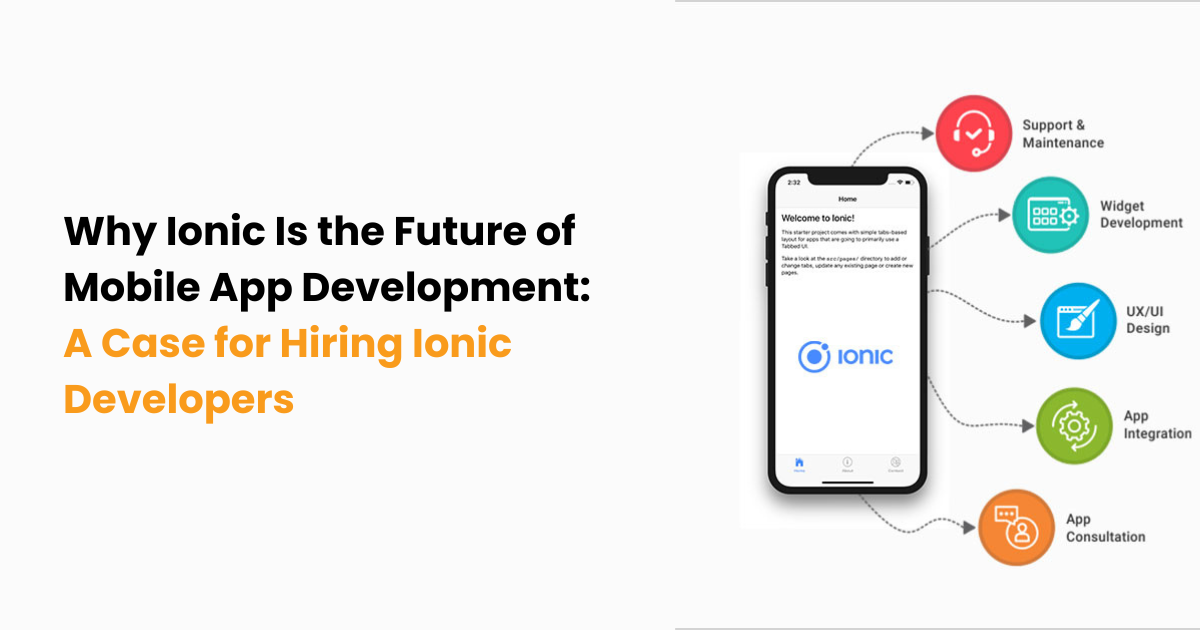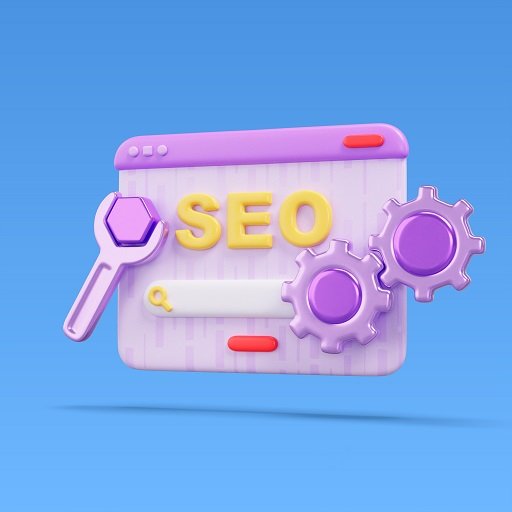In the ever-evolving world of mobile application development, the demand for efficient, scalable, and cost-effective solutions continues to rise. Businesses and developers are constantly looking for frameworks that allow them to build robust, high-performance applications without the need to create separate codebases for multiple platforms. Ionic has emerged as one of the leading frameworks in this space, offering a seamless approach to building mobile applications across multiple platforms from a single codebase.
In this article, we will explore why Ionic is the future of mobile app development and why hiring Ionic developers is a smart choice for your business. We will delve into the key features, advantages, real-world applications, and how to make the most of this framework by leveraging the expertise of Ionic developers.
- 80% of developers report increased productivity when using cross-platform development frameworks like Ionic.
- 1 million+ apps have been built using Ionic, highlighting its growing popularity among developers.
- Over 5,000 plugins are available for Ionic, providing developers with an extensive library of pre-built solutions.
- 75% of businesses prefer hybrid app development frameworks like Ionic due to the cost and time savings.
What is Ionic Framework?
Overview of Ionic
Ionic is an open-source framework that enables developers to create cross-platform mobile applications using web technologies such as HTML, CSS, and JavaScript. Initially built on top of Angular, it has since evolved to support multiple frameworks like React and Vue.js. Ionic allows developers to use a single codebase to create apps for Android, iOS, and the web, significantly reducing development time and cost.
The key advantage of Ionic is its ability to bridge the gap between web development and native mobile app development. With Ionic, developers can leverage their existing web development skills to build mobile apps that feel and perform like native applications.
Key Features of Ionic Framework
- Cross-Platform Support: Ionic allows developers to build apps that run on multiple platforms (iOS, Android, and web) with a single codebase.
- Rich Library of UI Components: Ionic offers a comprehensive set of pre-built UI components that mimic native mobile UI patterns, ensuring a seamless user experience.
- Native Device Features Integration: Ionic supports plugins that provide access to native device features like camera, GPS, and storage.
- Extensibility: The framework can be extended with various third-party libraries and plugins to enhance functionality.
- Fast Development: With tools like Ionic CLI and Ionic Studio, developers can rapidly build and test apps.
Why Ionic is the Future of Mobile App Development
1. Cross-Platform Compatibility
One of the primary reasons why Ionic is becoming the go-to choice for mobile app development is its cross-platform capabilities. By using a single codebase, developers can deploy their app on both iOS and Android platforms, as well as the web, without the need to duplicate efforts for each platform.
This compatibility not only saves time but also ensures consistency across various devices and operating systems. As the demand for apps on multiple platforms increases, the ability to target all major platforms with one codebase will become an essential feature.
2. Cost Efficiency
Building separate apps for each mobile platform can be a costly and time-consuming process. Ionic helps businesses save money by reducing the development cost significantly. Developers do not have to write platform-specific code for iOS and Android; instead, they can write the app once and deploy it everywhere.
In addition to the initial development savings, Ionic also lowers long-term maintenance costs. With only one codebase to maintain, updating and fixing bugs across all platforms becomes much more manageable.
3. Speed and Performance
Ionic’s architecture is designed to optimize performance. It uses the WebView component to render the app’s user interface, ensuring that apps load quickly and run smoothly. Furthermore, Ionic’s integration with native device APIs provides the performance and capabilities required for building sophisticated mobile apps.
Unlike other hybrid frameworks, Ionic delivers near-native performance, making it suitable for complex applications like e-commerce, gaming, and media apps.
4. Open-Source Nature
Ionic is open-source, meaning developers have access to the source code and can customize the framework to suit their needs. This open-source nature fosters a large community of developers who contribute to improving the framework, providing plugins, and sharing knowledge.
This extensive support ensures that developers can find solutions to their challenges quickly, allowing businesses to move forward with their projects without unnecessary delays.
5. Scalability and Extensibility
Ionic is highly scalable, making it a perfect choice for both small startups and large enterprises. Whether you’re building a simple app or a complex, feature-rich mobile application, Ionic can handle the growing demands of your business.
Furthermore, Ionic is highly extensible, allowing developers to integrate third-party libraries and APIs to extend the functionality of their applications. This flexibility ensures that businesses can adapt their apps to evolving requirements as they scale.
Advantages of Hiring Ionic Developers
1. Expertise in Building Hybrid Mobile Apps
When you hire Ionic developers, you’re leveraging their expertise in building high-quality hybrid mobile apps. They are skilled in using web technologies like HTML5, CSS3, and JavaScript to create apps that run seamlessly on multiple platforms.
Ionic developers understand how to optimize mobile apps for performance, ensuring that the app behaves like a native application, even though it’s built using web technologies.
2. Faster Time-to-Market
Hiring Ionic developers helps accelerate the development process. Since Ionic allows for cross-platform development, apps can be launched simultaneously on multiple platforms, reducing the overall time-to-market. This is especially important for businesses looking to capitalize on time-sensitive opportunities or release updates quickly.
3. Cost-Effective Solutions
By hiring Ionic developers, you ensure that your mobile app development is cost-effective. You eliminate the need to hire separate developers for iOS and Android development. Ionic developers can build and maintain a single codebase that works across multiple platforms, saving your business money in the long run.
4. Seamless Integration with APIs
Ionic developers are proficient at integrating third-party APIs into mobile applications. Whether it’s social media authentication, payment gateways, or geolocation services, Ionic developers can ensure that your app works seamlessly with external services.
5. Access to a Robust Development Ecosystem
Ionic developers have access to a vast ecosystem of tools, plugins, and resources that can enhance the functionality of your app. From push notifications to native device features, Ionic developers can integrate everything you need to create a fully-featured mobile application.
Real-World Applications of Ionic Framework
1: Market Leaders Using Ionic
S Market Leader 1: Companies like Nestle and Target have adopted Ionic to build scalable, feature-rich applications. Nestle, for example, used Ionic to create a cross-platform app for their marketing campaigns, allowing them to reach a global audience.
Target: Target’s mobile app was built using Ionic, allowing them to seamlessly integrate shopping features, store locators, and personalized offers, all from a single codebase.
2: Startups Leveraging Ionic for Success
Startup 1: A fast-growing startup in the fitness industry used Ionic to create an app that integrates wearable tech with a user-friendly mobile interface. The app’s success is attributed to its ability to work across multiple platforms, allowing them to reach users on iOS and Android.
Startup 2: Another startup in the e-commerce sector utilized Ionic to develop an app that could be easily updated with product listings, promotions, and customer interactions. By using Ionic, they minimized development costs while quickly rolling out new features.
How to Hire Ionic Developers for Your Project
Key Skills to Look for
When hiring Ionic developers, consider the following key skills:
- Proficiency in web technologies: Developers should be skilled in HTML5, CSS3, and JavaScript.
- Experience with Ionic Framework: Look for developers with experience building mobile apps using Ionic.
- Familiarity with native device features: Developers should be familiar with integrating native device capabilities using Ionic’s plugins.
- Cross-Platform Development Experience: Ensure the developer has experience working with multiple platforms (iOS, Android, and web).
The Right Approach for Hiring Ionic Developers
- Assess their portfolio: Review previous projects to see how well they can implement your vision.
- Evaluate their communication skills: Effective communication is essential for remote collaborations.
- Check references: Speak to previous employers or clients to understand their working style and expertise.
- Test their technical knowledge: Conduct technical interviews to evaluate their problem-solving and coding abilities.
Conclusion
Ionic is the future of mobile app development due to its ability to deliver high-quality, cross-platform apps that meet the needs of businesses and users alike. By hiring Ionic developers, companies can take advantage of cost-effective, scalable, and high-performance mobile applications. Whether you’re a startup looking for a quick market entry or an enterprise aiming for long-term scalability, Ionic offers the tools and capabilities to help you succeed.
Frequently Asked Questions
1. What makes Ionic different from other mobile app development frameworks?
Ionic stands out due to its ability to build cross-platform apps using a single codebase. Unlike other frameworks, it leverages web technologies like HTML5, CSS3, and JavaScript, allowing developers to use their existing web development skills to build mobile apps.
2. Is Ionic suitable for building large-scale applications?
Yes, Ionic is highly scalable and can be used to develop both small-scale and enterprise-level applications. Its ability to integrate with various backend systems and APIs makes it suitable for large-scale projects.
3. How much does it cost to hire Ionic developers?
The cost of hiring Ionic developers varies depending on factors like location, experience, and project complexity. However, since Ionic allows for cross-platform development, it generally reduces the overall development cost compared to native development.
4. Can Ionic be used to build native-like mobile apps?
Yes, Ionic is designed to deliver near-native performance, making it possible to build mobile apps that feel and perform like native apps, thanks to its use of native device features and optimized performance.
5. How long does it take to build an app with Ionic?
The development time with Ionic depends on the complexity of the app. However, since you only need to maintain one codebase for multiple platforms, Ionic typically reduces the development time significantly compared to traditional methods.














Leave a Reply